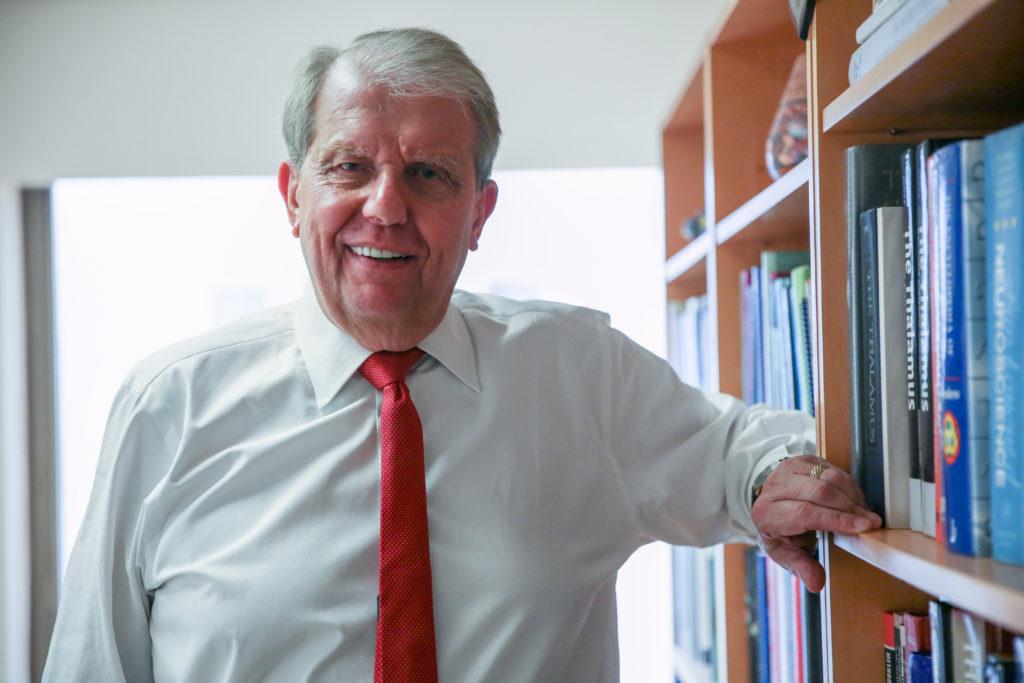GW’s first vice president for research will step down this summer, according to a University release Thursday.
Leo Chalupa, who has served in the position since 2009, will leave his post July 1. He will join the medical school as a professor of pharmacology and physiology after a sabbatical, according to the release.
“I am extremely proud of what the OVPR team has accomplished in the nine-plus years I have been vice president for research,” Chalupa said in the release.
During his tenure, Chalupa was a key figure in the effort to raise the University’s research profile, which has become a larger part of GW’s identity over the last decade. He was hired from the University of California, Davis after a long career in neurobiology to lead the newly created research office, which focuses on supporting faculty who conduct projects and helping them secure research funding.
Upon his arrival, Chalupa outlined six areas of research he wanted to expand, including autism, science policy and sustainability.
Chalupa helped develop GW’s autism institute, which launched in 2010 and has secured major grants to study autism.
GW rose in the National Science Foundation’s research rankings from 109 at the start of his tenure in 2009 to 81 in 2016. He said last year that the University raked in about $10 million more in federal research subsides in 2016 compared to 2006.
To encourage research faculty to pursue projects, Chalupa embedded research staffers in individual schools and allowed schools to keep more of the federal money they earn from research.
As federal grants grew more competitive in his tenure, Chalupa sought to find alternative funding streams for faculty, including bolstering cooperate research. In September, an engineering professor secured a $5.3 million agreement to study a cancer treatment – the largest cooperate research project in University history.
He also pursued international avenues of funding, helping to build partnerships with universities in Rome and Paris and inviting representatives from the European Union to campus workshops.
Recently, Chalupa has pushed for more undergraduate involvement in University research, creating “GW Research Days” for students to showcase projects and funding the University’s first undergraduate research journal. He also sought to boost research in the humanities, adding seminar grants and funding incentives last year.
Some faculty were frustrated working with Chalupa’s office throughout his tenure. Professors complained that high turnover in the office hurt their chances for grants, and others said they were shut out of major decisions. Officials announced last month that the University would create a faculty research task force designed to tackle many of the processes that frustrated professors as part of University President Thomas LeBlanc’s goal to improve research.
LeBlanc said Chalupa made major progress in boosting the University’s research reputation during his nine-year tenure.
“In his nearly a decade of service, Leo has greatly advanced the university’s research endeavors,” he said in the release. “His efforts to forge world-class interdisciplinary research institutes, create innovative entrepreneurship programming and industry partnerships and to develop comprehensive resources for faculty and students have put us squarely on the path to preeminence as a comprehensive global research university.”





